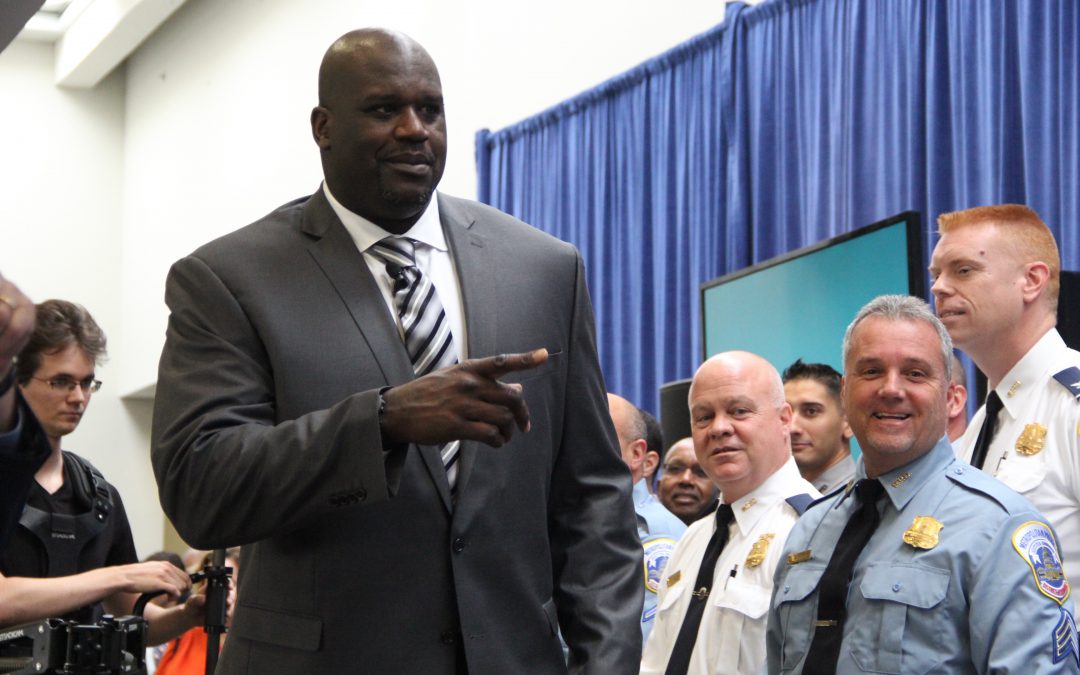WASHINGTON — NBA Hall of Famer and former Los Angeles Lakers center Shaquille O’Neal finished his career with 2,732 blocks, but the premier shot blocker wasn’t on Capitol Hill Wednesday to protect the rim, instead he was protecting the roads.
O’Neal, who became a reserve police officer for the Doral, Florida police department in January 2015, has partnered with the Foundation for Advancing Alcohol Responsibility to plug efforts to give police better tools to recognize when drivers are under the influence of drugs.
The four-time NBA champion, along with Responsibility.org, have committed to provide two years of funding for grants to fund training for officers to become drug recognition experts, who specialize in responding to drug-related impairment. On Wednesday, he announced the second round of grants.
“As a result (of the first round of grants), more than 500 officers were certified DREs,” O’Neal said. “I’m here to announce the second string of grants.”
In the grant program’s first year, states such as Florida, Nevada and Texas received funding to employ drug recognition experts. O’Neal said applications for the new round of grants will go out this week.
O’Neal said although drunk driving fatalities have decreased 51 percent since 1982, driving under the influence of drugs has increased.
The lack of a standard for a legal limit of marijuana complicates the process of arresting drugged drivers, but DREs can help to resolve this issue, he said.
Chuck Hayes, drug evaluation and classification program manager for the International Association of Chiefs of Police, said drugged driving is often overshadowed by drunk driving.
“We should be looking at it in the same context as how do we attack drunk driving,” Hayes said. “There were national efforts that went on for that and we now need to be looking at a national perspective and a national effort to attack drugged driving.”
Hayes added that a big step in providing police officers with more resources would be to equip them with “not only oral testing devices, but also marijuana breathalyzers.” He said the breathalyzers still aren’t perfect but at least show drugged driving is getting more attention.
There are “a little over 8,000 DREs that are credentialed in the United States,” but many more are needed, according to Hayes.
O’Neal agreed.
“We just need to get these officers the funding and the training that they need.”


